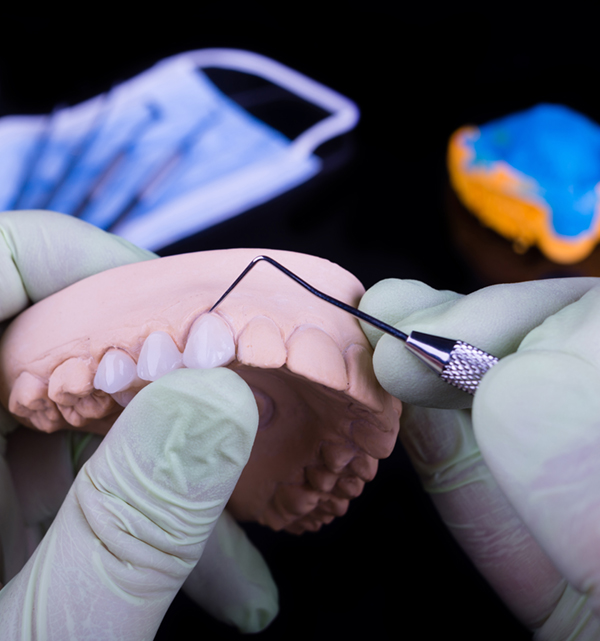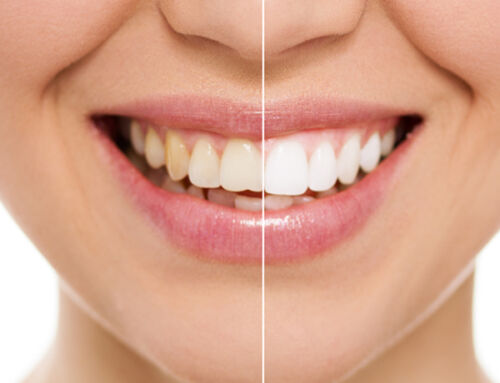Tooth loss can drastically impact your life. It can cause a loss of confidence in how you smile and speak, impaired functions, especially when you have to eat, loss of muscle tone and displeasing facial changes, and even psychological discomfort. With the negative impacts of a missing tooth on one’s life, tooth replacement procedures are always highly prioritized.
This is where a prosthodontist can help. With additional years of education under their belt, prosthodontists are specialists in teeth replacement who can drastically improve your smile and life. Learn more about them below.
What is a prosthodontist?
After graduating from dental school, general dentists have the option to proceed to a continuing education program in one of the nine specialties of dentistry. These programs must be accredited by the Commission on Dental Accreditation of Canada (CDAC) to grant the proper license to practice. And among these specialties is prosthodontics.
Prosthodontics is a branch of dentistry that deals with replacing teeth and other oral and maxillofacial structures using prosthetics. Someone who has completed an additional 3-year specialization in prosthodontics is known as a prosthodontist.
Prosthodontists have advanced and up-to-date knowledge in diagnosing and restoring missing teeth and facial structures. This helps in the treatment of oral functions, comfort, appearance, and overall health.
Who needs a prosthodontist?
Prosthodontists are experts in teeth replacement and oral and maxillofacial reconstruction targeted at improving the quality of life.
Some of the situations that may need a prosthodontist are:
- Tooth loss due to dental caries or trauma
- Congenitally missing teeth
- Poor bite alignment
- Cosmetic concerns
- Facial pain
- TMJ disorder
- Facial deformity from an accident
- Obstructive sleep apnea
- Jaw disorders
What is the difference between a dentist and a prosthodontist?
A dentist is someone who has graduated from dental school. They have the skill and knowledge when it comes to diagnosis and treatment of most general dental concerns. With that, they can provide routine dental procedures such as check-ups and teeth cleaning. They also offer dental fillings and other simple cosmetic and prosthodontic work.
Meanwhile, if you need an expert diagnosis and for more complex concerns, a specialist is what you need. Specialists are who general dentists refer patients to if the problem is out of their scope of knowledge. And for making teeth replacements, a prosthodontist is the specialist you need.
Prosthodontists utilize a comprehensive approach to architectural smile diagnosis, treatment, and maintenance. This helps them create life-changing smiles that stop the progression of diseases, prevent future recurrences, and maintain optimal oral health.
Training and Professional Recognition
After completing the education and licensure examination for general dentists, the next step for professional licensing as a prosthodontist is to complete the requirements and standards set by the Canadian Dental Association (CDA) and American Dental Association (ADA). This is through continuing education in one of the accredited dental programs of the Commission on Dental Accreditation of Canada (CDAC).
Aside from Prosthodontics, other dental specialties include the following:
- Dental Public Health
- Endodontics
- Oral and Maxillofacial Surgery
- Oral Medicine and Pathology
- Oral & Maxillofacial Radiology
- Orthodontics and Dentofacial Orthopedics
- Pediatric Dentistry
- Periodontics
Clinical Expertise
The role of a prosthodontist encompasses just the replacement of teeth. Due to the possibilities of oral and general health deterioration, the role of a prosthodontist should include the improvement of life. That being said, the clinical expertise of a prosthodontist involves two main components:
- Diagnosis, treatment planning, and prevention
- Treatment solutions in smile rehabilitation and oral and maxillofacial reconstruction – fillings, dentures, veneers, crowns, bridges, splints/nightguards, dental implants, cosmetic dentistry
With a prosthodontist’s expert skill and knowledge, other oral health complications such as generalized dental caries, periodontal disease, oral cancer, trauma, and other behavioural conditions are prevented. And with lifelong maintenance and care, your prosthodontist can significantly improve your smile and life.
Dental Treatments Provided by a Prosthodontist
Prosthodontics involves a wide range of treatments. Depending on what your smile needs, some of the treatments that your prosthodontist may recommend include:
Restoration of damaged teeth
Worn-out teeth can result from dental caries, teeth grinding, systemic diseases, or congenital illnesses. To renew your smile, your prosthodontist may recommend complete smile rehabilitation involving fillings, veneers, or crowns. This ultimately depends on the severity of your dental condition.
Comprehensive cosmetic dentistry
One of the goals of your prosthodontist is to create a smile that is both esthetically pleasing and functional. So, the final dental prosthesis for your missing teeth should blend seamlessly with the rest of your teeth and complement your facial features and personality. This involves meticulous smile design in terms of colour-matching and teeth shaping.
With a keen eye for detail and precise artistry, your prosthodontist can design and construct your new smile using natural-looking restorations.
Replacement of missing teeth
Prosthodontists offer a broad range of treatment options for teeth replacement. There are fixed options, such as a dental bridge which is ideal for replacing 2 – 3 adjacent teeth. For removable prostheses, dentures can effectively replace a single tooth or a full set of missing teeth.
But if you are looking for the most advanced tooth replacement, consider dental implants. These are permanently fixed in the bone and fitted with an artificial tooth attachment. With good treatment planning and execution, a dental implant can mimic the appearance and function of a natural tooth.
Complex treatment and reconstruction
For patients with temporomandibular joint disorders or TMD, oral splints can greatly help improve the bite and enhance comfort. Prosthodontists can also help treat patients with birth defects such as cleft palate, traumatic injuries involving the oral and maxillofacial structures, and comprehensive head and neck restoration after surgical radiation.
Prosthodontics at Chinook Dental Group
Discover the art and science of specialized prosthodontics with Chinook Dental Group. We have a team of prosthodontists trained and experienced in full mouth reconstruction and elaborate smile designs. Book an appointment today for an expert consultation!





